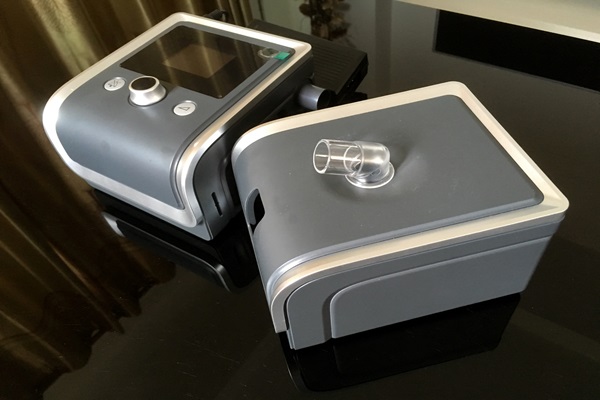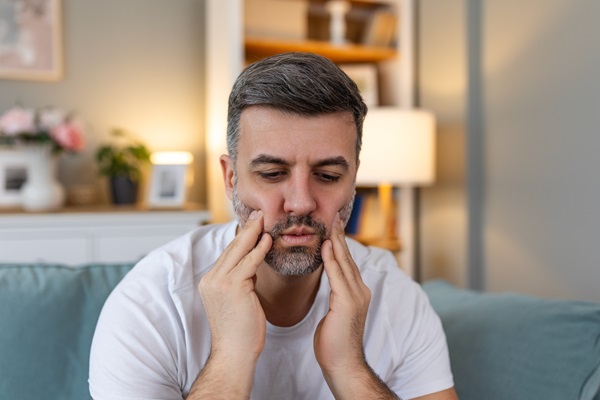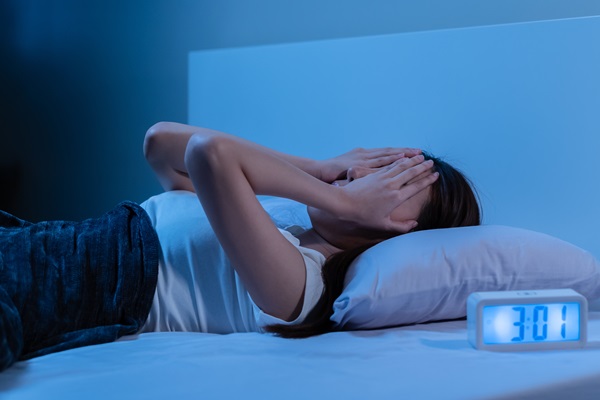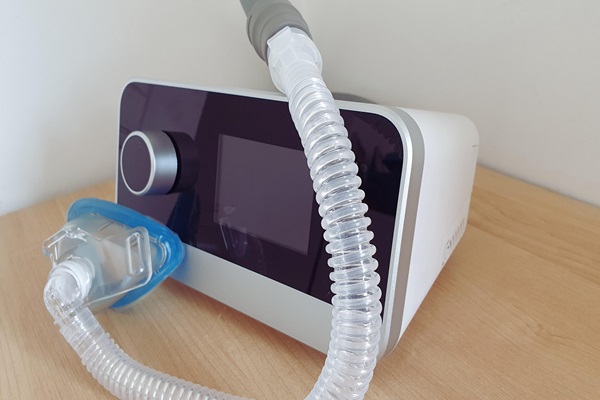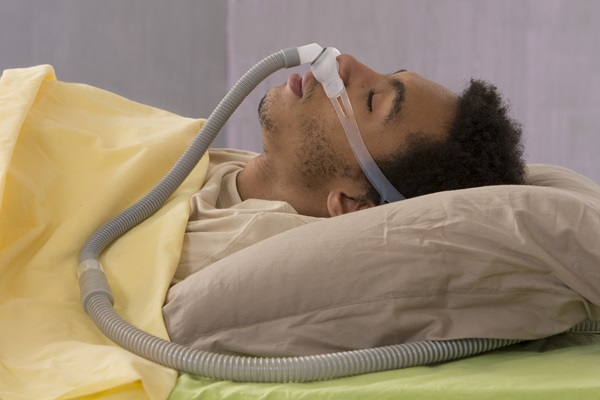Sleep Apnea TreatmentRed Bluff, CA
Sleep apnea treatment can help patients wake up feeling fully refreshed and well-rested. You may benefit from a sleep apnea screening if you struggle with snoring while asleep. Sleep apnea is one of the most common sleep-related disorders. We can help prevent snoring from interrupting sleep, among other issues that can affect one’s health.
Sleep apnea treatment is available at Dental Sleep Solutions Group in Red Bluff and the surrounding area. Get the rest you deserve. Call us today at 1-530-727-6080 to schedule an appointment or learn more about our services.
Understanding Sleep Apnea
Sleep apnea is a potentially severe sleep disorder where patients experience intermittent breathing in their sleep, according to the Mayo Clinic. There are three main types of sleep apnea, obstructive sleep apnea (OSA), central sleep apnea (CSA), and mixed sleep apnea syndrome (MAS), also known as complex sleep apnea. Sleep apnea can negatively impact a person’s oxygen levels and cause lower-quality sleep.
Obstructive sleep apnea (OSA) is the most common form of sleep apnea and the most common sleep-related breathing disorder. It occurs when the throat muscles relax and block the patient's airway during sleep. Snoring is one of the most noticeable characteristics of obstructive sleep apnea. CSA results from the brain’s muscle control system and the way breathing signals are sent to the throat and respiratory muscles. Mixed sleep apnea, also called complex sleep apnea, refers to a person who has both OSA and CSA.
Check out what others are saying about our Sleep Apnea Treatment services on Yelp: Sleep Apnea Treatment Red Bluff
Common Causes of Sleep Apnea
According to WebMD, the most common cause of obstructive sleep apnea in adults is excess body weight since being overweight increases the chance of having extra soft tissue in the back of the throat. When the throat and tongue muscles are more relaxed during sleep, the soft tissue may block the airway. Over half of people with obstructive sleep apnea are either overweight or obese.
Enlarged tonsils or adenoids and certain dental conditions can cause obstructive sleep apnea in children. However, less common causes include a tumor or growth in the airway and certain congenital abnormalities. Untreated obstructive sleep apnea can lead to serious complications in patients of any age, ranging from accidents to cardiovascular disease and premature death. As such, immediate treatment is essential for one's health.
Symptoms of Sleep Apnea
Common symptoms of obstructive sleep apnea include:
- Daytime sleepiness or fatigue
- Dry mouth or sore throat upon waking
- Gastroesophageal reflux disease (GERD)
- Headaches in the morning
- High blood pressure
- Night sweats
- Restlessness during sleep
- Trouble concentrating, forgetfulness, depression, or crankiness
- Waking up often in the middle of the night to pee
Many of the above symptoms are also common to central sleep apnea. In any case, patients' bedmates will often notice their obstructive sleep apnea before they do.
Risk Factors for Sleep Apnea
Obstructive sleep apnea occurs when a person's airway is blocked while they are asleep. Several factors may increase a person's risk of blockage and obstructive sleep apnea, including:
Anatomical Characteristics: The size and positioning of one's jaw, neck, tongue, tonsils, and other tissue near the back of the throat directly impact airflow.
Smoking Cigarettes: Patients who smoke, especially heavily, have been found to develop obstructive sleep apnea at a higher rate than those who do not.
Family History: Patients are more likely to develop obstructive sleep apnea if they have one or more close relatives with the condition.
Hormone Abnormalities: Certain hormone conditions, such as hypothyroidism and acromegaly, may cause swelling of the tissue near the airway. Alternatively, they may contribute to a person's risk of obesity.
Nasal Congestion: People with a limited ability to breathe through the nose are more likely to experience obstructive sleep apnea.
Obesity: Being overweight may contribute to up to 60% of obstructive sleep apnea cases, as obesity is directly correlated with an anatomical narrowing of the airway.
Consuming Alcohol or Medications: The use of sedatives, including alcohol, can cause tissue in the throat to relax, which facilitates airway obstruction.
Sleeping on One’s Back: Sleeping on one's back makes it easier for tissue to collapse around the airway, facilitating blockages.
Treatments for Sleep Apnea
Milder cases of obstructive sleep apnea respond well to lifestyle changes, such as:
- Avoiding sedatives
- Avoiding sleeping on one’s back
- Exercising regularly
- Limiting alcohol intake
- Losing weight
- Smoking cessation
- Using a nasal decongestant or allergy medications
If the above measures are not sufficient or if the patient has moderate to severe obstructive sleep apnea, other treatment methods are available.
Common treatments for more severe sleep apnea include Continuous Positive Airway Pressure (CPAP) machines, oral appliances, surgery, upper airway stimulation (UAS), and medication. CPAP machines deliver continuous oxygen flow via a mask during sleep. Oral appliances are custom-made devices a dentist creates to keep the airways open. Various surgeries can be performed to solve the root problem: the sinuses, jaw, tongue, throat, or soft tissues.
Upper airway stimulation involves a device connected to the chest that analyzes a person’s breathing patterns and sends signals to keep the airways open. Medications may be prescribed when these options are not suitable for a patient’s treatment plan. We will determine the type of treatment depending on the patient’s age, type of sleep apnea, and medical conditions that may restrict certain solutions.
Frequently Asked Questions About Sleep Apnea
What will happen if I do not treat my obstructive sleep apnea?
If left untreated, obstructive sleep apnea can cause excessive daytime fatigue, memory loss, and morning headaches. It may also increase the risk of several systemic health issues, including but not limited to type 2 diabetes and coronary artery disease. As such, treating obstructive sleep apnea is crucial to one’s overall health.
How can an oral appliance help me with my obstructive sleep apnea?
An oral appliance is a custom-made device you wear while asleep. It helps with obstructive sleep apnea by keeping the airway open and unobstructed by supporting the jaw in a forward position. This prevents the upper airway from collapsing and blocking the airway.
How common is obstructive sleep apnea?
According to the American Academy of Dental Sleep Medicine, obstructive sleep apnea affects approximately 54 million adults in the United States. Obstructive sleep apnea is the most common form of sleep apnea. Other forms include central sleep apnea and complex sleep apnea syndrome.
What is the success rate of sleep apnea treatments?
Each case, treatment, and person is different. There could be two patients with the same type of sleep apnea but who have entirely different results. For example, the success rate of most sleep apnea surgeries is 60%, while a CPAP machine may completely cure a person of their condition.
What foods should patients with sleep apnea avoid?
There are not many restrictions on foods and beverages for patients with sleep apnea unless their case is caused by an allergy or other specific factor. Dairy and bananas are known to increase mucus production, which can cause or progress sleep apnea. We will discuss any restrictions if a patient’s case requires them.
Schedule a Visit Today
Sleep apnea consultations and treatments are available at our office. The Dental Sleep Solutions Group team looks forward to treating you and helping you get back to regular sleep. Call our office at 1-530-727-6080 to learn more or schedule an appointment.
Dental Sleep Solutions Group is located at 2426 S Main St Suite B Red Bluff, CA 96080.

